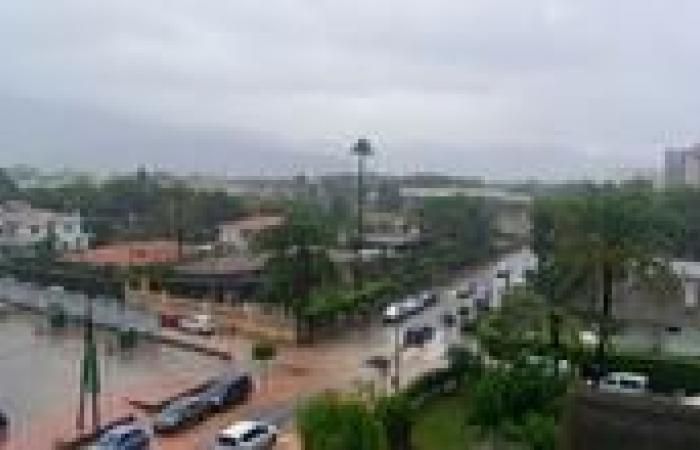Three days after Cyclone Chido hit Mayotte, Patrick Millan is still in shock. “There is nothing left, everything is razed, as if a Hiroshima bomb had fallen,” he whispers on the phone. In 2005, this Bordeaux resident created a local media group on the island, around Kwezi TV and the Journal de Mayotte. He saw it partly disappear in a few hours under the onslaught of the cyclone.
Neighborhoods of lightweight corrugated iron buildings were completely devastated.
PM/SO
Mayotte: after the passage of Cyclone Chido, 4 risks for the health of residents
Collapsed buildings, devastated houses, uprooted trees… In the aftermath of a natural disaster, such as Mayotte experienced this weekend, physical injuries are the first impacts that must be faced. But aside from these immediate consequences, natural disasters cause many longer-term problems. What's more in Mayotte where 77% of the population lives below the poverty line.
“The company premises are devastated, my apartment too, nothing remains. Out of 16 employees, only three returned to work. We restarted the radio in the corner of our room, like a free radio when we were 15! We do the newspaper remotely, we tinker as best we can with the internet, the electricity hasn't come back everywhere. The other employees are stuck outside, outside of Mamoudzou everything is inaccessible. »
PM/SO
The destruction is considerable in Mamoudzou, the capital of the island of Mayotte.
“The day in a closet”
Patrick Millan was at home when Chido arrived: “at first, you don't understand what's happening, you don't react, even if you're a journalist, aware that the cyclone was going to hit hard, you have no reaction . 236 km/h wind, I had never seen that. It lasted from 10 a.m. to 5 p.m., with a calm in the middle, the eye of the storm. You think it's over, that everything will go back to normal, there's even the sun coming back, and then it starts again! I have an employee who spent the day locked in a cupboard to protect herself, she told me to call my husband, my children! Another was left in the toilet with a baby. When it finally stops, you look around and you understand even less, what happened, how we get out of this…”
“The food rots under the metal sheets, where there are also bodies sometimes, the rats arrive, we fear cholera”
The Bordelais describes an island in pieces, the main services do not work, there is no water everywhere. “We are afraid of diseases, some had freezers which were destroyed, the food rots under the metal sheets, where there are also bodies sometimes, rats arrive, we fear cholera. It’s dramatic, a nightmare.”
Since Monday the 16th, the army has been hard at work, “we see trucks and bulldozers passing by, they are starting to clear the debris. I'm 60 years old, I don't know if I would have the strength to rebuild…”








